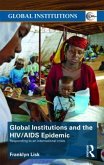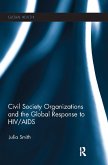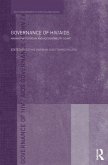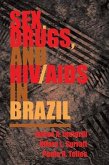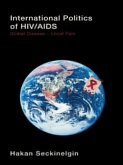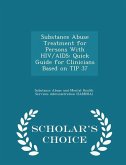The governance of the HIV/AIDS pandemic has come to represent a multi-faceted and complex operation in which the World Bank has set and sustained the global agenda for by the World Bank. The governance of HIV/ AIDS. Through economic incentive they have restructured the is a political foundations of countries in sub-Saharan Africa and the pursuit of change in state, project that seeks to embed liberal practice through individual, state, and societalcommunity behaviour. At the heart of this practice is the drive to impose blueprint neoliberal market-based solutions on a personal-global issue. This book unravels how the Bank's good governance agenda and commitment to participation, ownership and transparency manifests itself in practice, through the Multi-Country AIDS Program (MAP), and crucially how it is pushing an agenda whichthat sees a shift in both global health interventions and state configuration in sub-Saharan Africa. The book considers the mechanisms used by the Bank - and the problems therein - to engage the state, civil society and the individual in responding to the HIV/AIDS crisis, and how these mechanisms have been exported to other global projects such as the Global Fund and UNAIDS. Harman argues in conclusion that not only has the Bank set the global agenda for HIV/AIDS, but underpinning this is a wider commitment to liberal governance reform through neoliberal incentive. Making an important contribution to our understanding of global governance and international politics, this book will be of interest to students and scholars of politics, international political economy, international relations, development studies and civil society.
Hinweis: Dieser Artikel kann nur an eine deutsche Lieferadresse ausgeliefert werden.
Hinweis: Dieser Artikel kann nur an eine deutsche Lieferadresse ausgeliefert werden.


